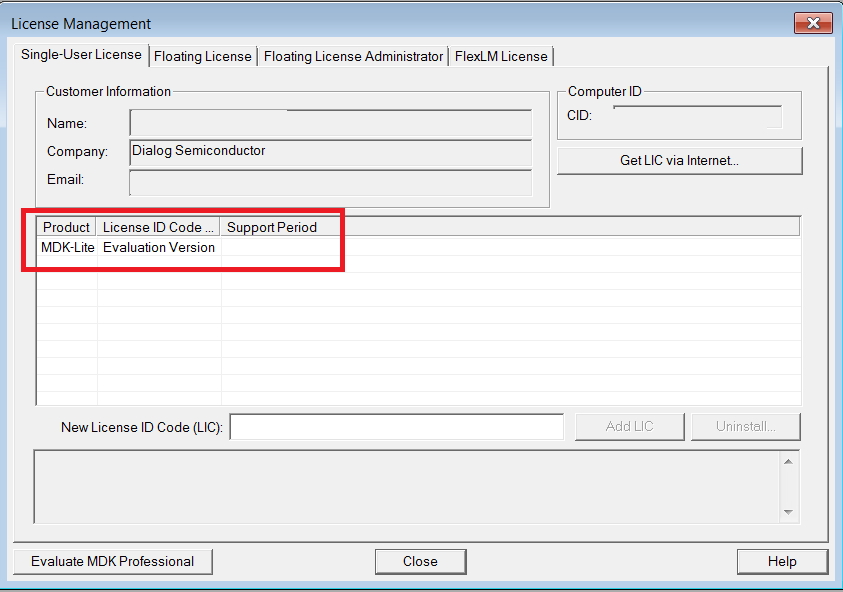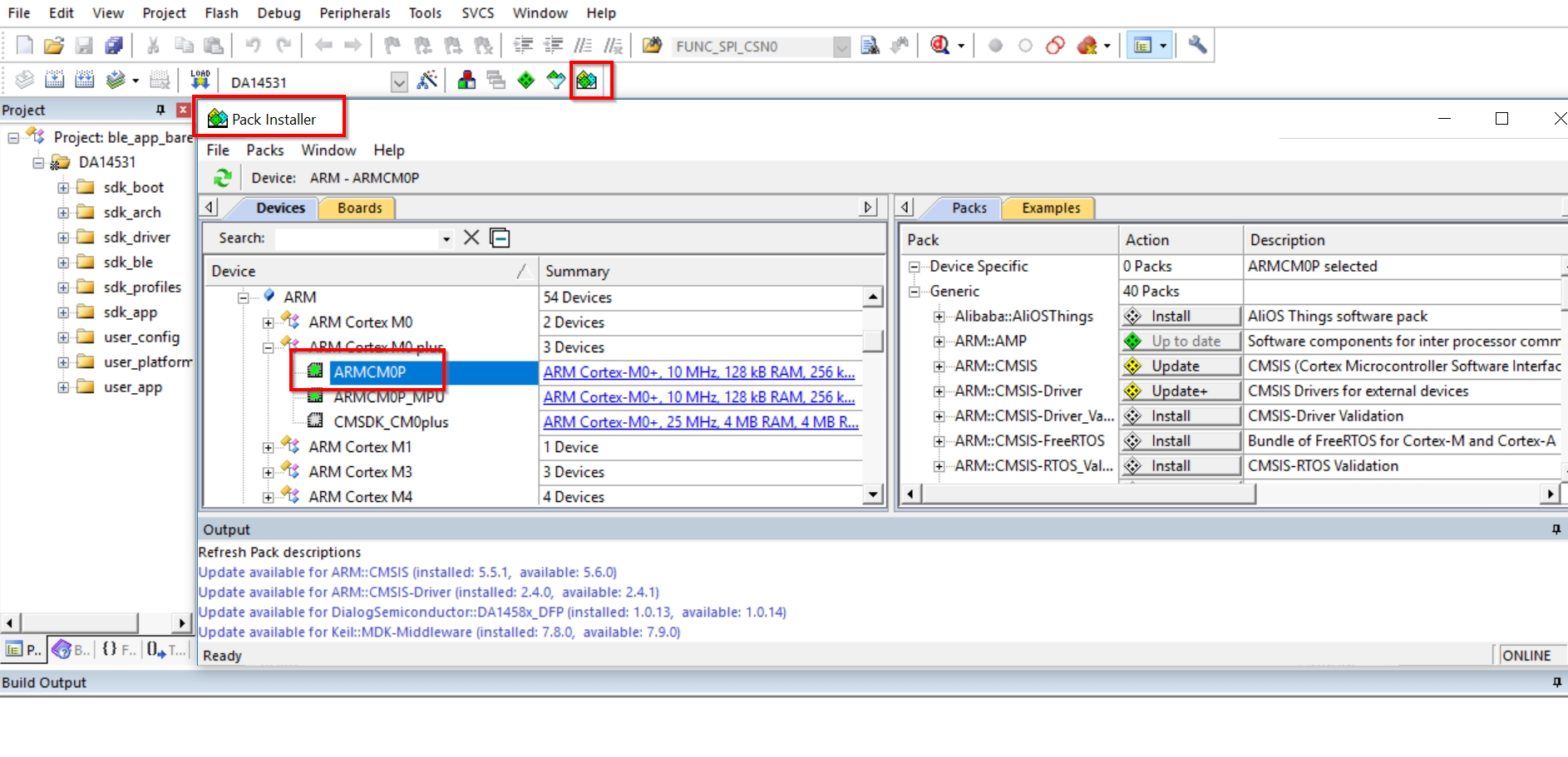6. Software Development Tools
Suggestion
J-Link debugger from SEGGER is offering standard debug capabilities such as single stepping, setting breakpoints, software download, and many more. For more details on the debugger capabilities, or installing it separately, you can visit https://www.segger.com/. Here we suggest installing SmartSnippets Studio. Other requirements will be installed in the process. See SmartSnippets™ Studio.
6.1. e² Studio and SDK6
The SDK6 is already compatible with GCC. The SDK 6.0.22 Includes now the support for e² studio and LLVM compiler for enhanced development support.
The example projects in the SDK which supports e² studio is: <sdk_root_directory>\projects\target_apps\ble_examples\prox_reporter\e2studio.
To start building a fully working solution on e² studio and SDK6 you can refer to the UM-B-176: e² Studio SDK 6 Getting Started Guide.
For more detailed information and to download the latest versions of e² studio, visit the Renesas e² studio page.
6.2. Keil Installation
For DA1453x, the Keil® µVision® IDE must be used for compilation and debugging for this tutorial.
Download and install the Keil® tools from https://www.keil.com/demo/eval/arm.htm.
Different Editions of MDK
When choosing an edition of the ARM Keil® MDK, it is essential to consider your licensing options. Users without an MDK-Professional License have two available choices:
1. Lite/Evaluation Version:
The Lite/Evaluation version of the Keil® development tools can be utilized without requiring a product license. However, this version comes with some limitations:
It imposes a 32 kB code size restriction (in ROM)
It is important to note that the Lite/Evaluation version may not support applications based on the latest SDK6 version. This is because the default C compiler in Keil projects has been changed to ARM v6 C compiler with LTO (link time optimization) support enabled, which is not available in the evaluation version of Keil-MDK.
2. MDK-Community Edition:
The MDK-Community Edition is designed for non-commercial use cases and provides specific advantages:
It is suitable for hobbyists, makers, students, and academics
This edition allows you to work with the latest SDK6 version, featuring the V6 ARM compiler with LTO (link time optimization) support enabled
To use the MDK-Community Edition, you need to obtain a valid license. You can obtain a product serial number and learn how to convert it into a license, which is valid for one year. Visit https://www.keil.arm.com/mdk-community/.
It is important to make an informed choice based on your usage requirements and licensing options.

Figure 18 Keil Lite Version
When the installation is complete, a list of packs is shown (Figure 19). If you do not see this list:
Click the Packs Installer button (or select Project > Manage > Pack Installer).
Click the Check for Updates button to show an updated list of packs.
Click the Install or Update button next to the ARM::CMSIS package, if not up to date.

Figure 19 CMSIS package installation